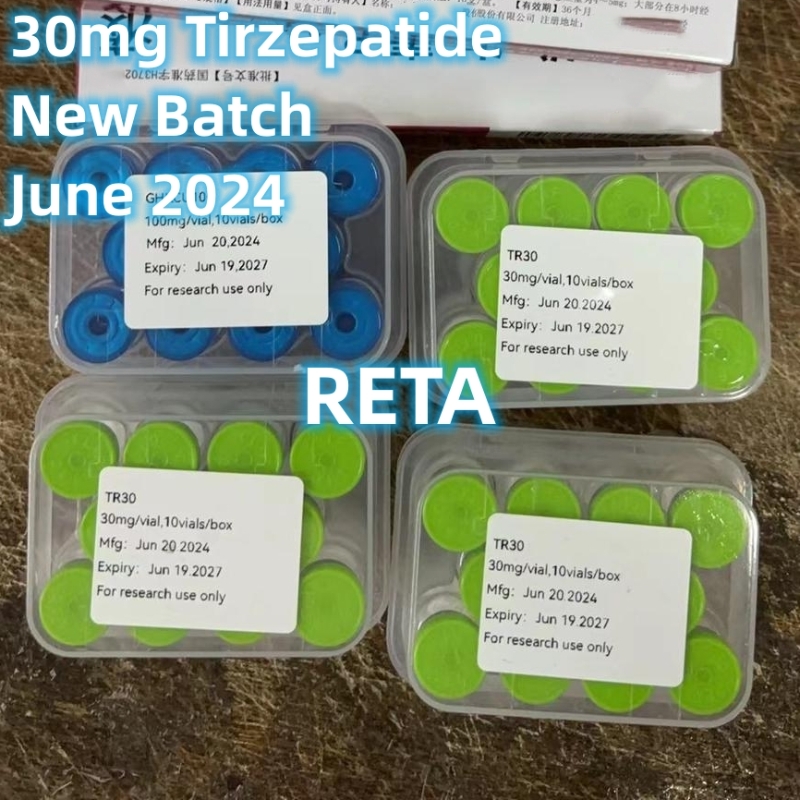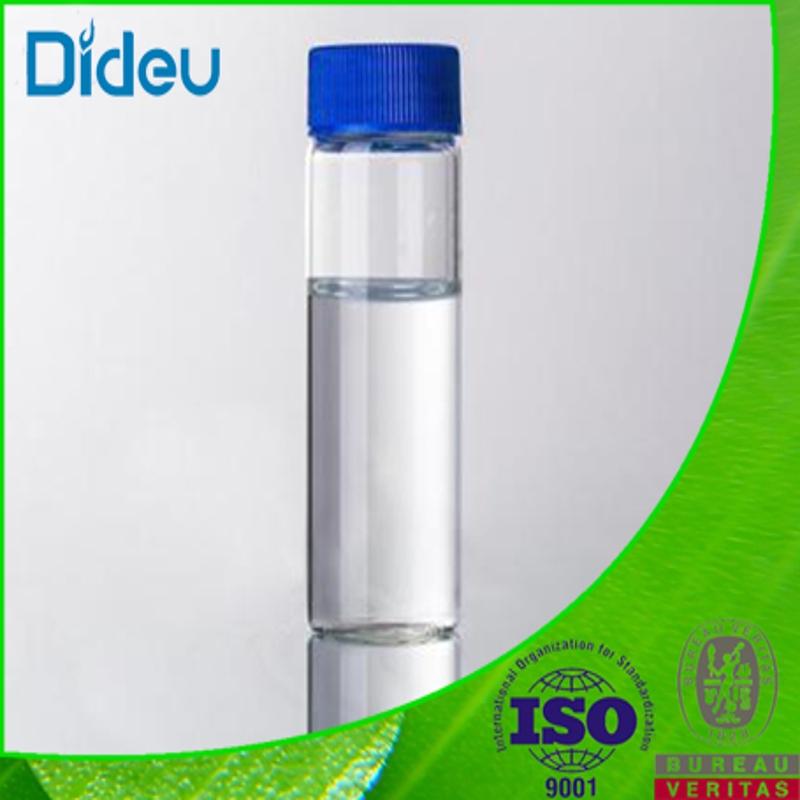-
Categories
-
Pharmaceutical Intermediates
-
Active Pharmaceutical Ingredients
-
Food Additives
- Industrial Coatings
- Agrochemicals
- Dyes and Pigments
- Surfactant
- Flavors and Fragrances
- Chemical Reagents
- Catalyst and Auxiliary
- Natural Products
- Inorganic Chemistry
-
Organic Chemistry
-
Biochemical Engineering
- Analytical Chemistry
-
Cosmetic Ingredient
- Water Treatment Chemical
-
Pharmaceutical Intermediates
Promotion
ECHEMI Mall
Wholesale
Weekly Price
Exhibition
News
-
Trade Service
In September 2021, NextOppty has screened 26 new drug development events worthy of attention
.
In addition to the positive and positive results that give the industry some hints and references on the direction of R&D layout, there are also some negative events that have led to the decline in the valuation of related companies or the loss of new opportunities for innovative drugs.
1.
Oral IL-17 antagonist
Oral IL-17 antagonist
On September 15, DICE Therapeutics successfully achieved an IPO on NSDQ.
Although the trend has fallen, the market value is close to 1 billion US dollars
.
From the information disclosed on the DICE website, the core product is an oral small molecule IL-17 antagonist
IL-17 was first disclosed in 1993, and 6 family members have been discovered so far, namely IL-17A, IL-17B, IL-17C, IL-17D, IL-17E (also known as IL-25) and IL-17F
.
With the deepening of research, the role of IL-17 in immune response and inflammatory response is gradually clarified, as well as its therapeutic role in autoimmune diseases such as rheumatoid arthritis, psoriasis, and inflammatory bowel disease
According to NextPharma data, there are currently more than 50 research and development projects targeting IL-17/IL-17R targets, of which 5 drugs have been approved for marketing
.
Novartis Cosentyx is the first IL-17 monoclonal antibody to be approved for the market, and its sales revenue is also far ahead, reaching nearly US$4 billion in 2020
DICE uses its proprietary DELSCAPE platform to discover and develop oral protein-protein interaction (PPI) small molecule drugs, and confirm that they have the same efficacy as biological agents
.
In view of the corroborative evidence and market performance of IL-17/IL-17R biological products in the field of diseases, it is not difficult to understand that small molecule drugs with the convenience of oral administration are compared with subcutaneously injected drugs in patient compliance and product cost.
2.
Pol θ inhibitor
Pol θ inhibitor
On September 28, Artios announced that its DNA polymerase theta (Polθ or POLQ) inhibitor ART4215 phase I/IIa study began to be administered to the first patient
.
The Polθ inhibitor ART4215 is the first selective, oral bioavailable small molecule inhibitor of Polθ polymerase to enter the clinic
DNA polymerase theta (Polθ or POLQ) is a synthetic lethal target with homologous recombination (HR) defects.
It plays an important role in the DNA damage response (DDR) pathway of double-strand breaks (DSB).
The areas that domestic and foreign pharmaceutical companies are paying attention to
.
In August, Medical Rubik's Cube tracked ART4215 to announce the first clinical research information, and then carried out detailed research reports on the target
Polθ is the new research result of Dr.
Graeme Smith, Chief Scientific Officer of Artios, and will publish related research in NATURE COMMUNICATIONS in June 2021
.
Dr.
3.
Anti-VEGF/DLL4 double antibody
Anti-VEGF/DLL4 double antibody
On September 14, OncXerna Theraputics launched a phase III clinical study to evaluate VEGF/DLL4 dual anti-Navicixizumab + paclitaxel vs Navicixizumab vs paclitaxel in the treatment of platinum-resistant ovarian cancer.
This is also the first phase III study of a dual anti-VEGF/DLL4 drug
.
Navicixizumab is an investigative anti-DLL4/VEGF bispecific antibody.
It has been proven in early clinical trials to have anti-tumor activity in patients with advanced Avastin (bevacizumab) treatment.
The previous phase II clinical ORR was 42%
.
VEGF is an effective angiogenesis inducer, and the mechanism and efficacy of its antibody drugs have also been widely recognized
.
Delta-like 4 is a protein encoded by the DLL4 gene in humans.
This gene is a homologous gene of the Drosophila delta gene.
The delta gene family encodes Notch ligands, which are characterized by DSL domain, EGF repeat sequence and transmembrane domain.
The Dll4-Notch signaling pathway has also been shown to regulate angiogenesis during development
.
The head-to-head study of T-Dxd (DS-8201) vs T-DM1 also brought breakthrough progress, reducing the risk of disease progression by 72% and reducing the risk of disease death by 44%
.
It is foreseeable that T-Dxd is expected to become the new second-line treatment standard for Her2-positive breast cancer
.
However, treatment drugs for patients with T-Dxd intolerance and discontinuation are still worthy of continuous development
.
The VEGF/DLL4 double antibody is expected to bring new treatment options for VEGF-resistant or platinum-resistant tumors
.
For more overview of opportunities, please see below
New opportunity
New opportunityAnti-LTBP4 monoclonal antibody
On September 8, 2021, Northwestern University and Solid Biosciences reported in Sci Transl Med that anti-LTBP4 antibody can bind to the hinge region of LTBP4 and prevent LTBP4 from being degraded.
LTBP4 can seize TGF-β, thereby reducing muscle fibrosis
.
TNK1 inhibitor
On September 9, 2021, researchers from Brigham Young University and Sumitomo Dainippon Pharma reported on the new anti-cancer target TNK1 on Nat Commun, and developed a small molecule inhibitor TP-5801
.
SUMO activating enzyme inhibitor
On September 15, 2021, Millennium Pharmaceuticals reported on Sci Transl Med that SUMOylation inhibits type I interferon responses, and the SUMO activating enzyme inhibitor TAK-981 can restore type I interferon signals, thereby promoting anti-cancer immune responses
.
DBO PBP inhibitor
On September 24, 2021, Entasis Therapeutics published the preclinical data of ETX0462 on Nature.
The drug acts on PBP and has high activity, but the chemical backbone is different from penicillium and cephalosporin antibiotics
.
Ibogine analogues
On September 27, 2021, Delix Therapeutics completed a US$70 million Series A financing.
In 2021, they reported an analogue of ibogine on Nature, which solved the hallucinogenic and toxicity problems of ibogine
.
Ibogine is known as the "magic drug for detoxification" and is effective for various addictives, but it has problems such as hallucinations and cardiotoxicity
.
Removal opportunity
Removal opportunityNEDD8 Activase Inhibitor
On September 1, 2021, Takeda updated the results of the Phase III PANTHER trial of pevonedistat for the treatment of MDS/CMML/AML.
The primary clinical endpoint of prolonging PFS was not reached, so this opportunity was withdrawn
.
Large financing | Large transactions | Valuation adjustment
Large financing | Large transactions | Valuation adjustmentAnti-HJV monoclonal antibody
On September 02, 2021, Disc Medicine completed a $90 million Series B financing.
Its core project, DISC-0974, is an anti-HJV monoclonal antibody that can reduce the synthesis of hepcidin and treat inflammatory anemia
.
MRGPRX2 antagonist
From September to September 2021, Evommune completed a US$83 million Series A financing, one of which is aimed at MRGPRX2 to treat chronic itching
.
MRGPRX2 is an alkaline substance receptor reported by Professor Dong Xinzhong in Nature in 2015, which mediates inflammation and allergies caused by alkaline substances
.
C3 inhibitor
From September to September 2021, the OAKS trial of Pegcetacoplan for the treatment of geographic atrophy reached the primary clinical endpoint, while the DERBY trial did not reach the primary clinical endpoint.
The market score was reduced from 3 to 2 and the project valuation was reduced from US$5 billion to US$2.
5 billion
.
Gene therapy expressing anti-VEGF antibody
On September 13, 2021, AbbVie and REGENXBIO have reached a cooperation agreement on RGX-314.
Both parties will share profits in the United States, and AbbVie will pay the sales share outside the United States.
AbbVie will pay a down payment of US$370 million and a mileage of US$1.
38 billion
.
GBA allosteric activator
On September 14, 2021, Vanqua Bio completed a US$85 million Series B financing.
Its core project is a small molecule GBA allosteric activator.
This gene mutation is related to Gaucher's disease, Parkinson's disease, and Lewy body dementia
.
Selective FGFR3 inhibitor
On September 15, 2021, Tyra Biosciences completed an IPO in NASDAQ with a valuation of US$700 million.
It mainly develops selective FGFR3 inhibitors that can overcome V555 resistance mutations and avoid FGFR1-related hyperphosphatemia.
Therefore, the project valuation is adjusted to $600 million
.
PTH analogs
On September 17, 2021, Amolyt Pharma completed a $80 million Series B financing.
Its core product, AZP-3601, is a PTH analogue for the treatment of hypoparathyroidism
.
rhPTH(1-84) cannot effectively control blood calcium and clinical symptoms for 24 hours.
AZP-3601 continuously increases blood calcium by binding to the R0 conformation of the PTH receptor
.
ACVR2A-Fc fusion protein
On September 30, 2021, Merck announced the acquisition of Acceleron and the acquisition of sotatercept, a pulmonary hypertension drug, with a transaction value of approximately US$11.
5 billion
.
Sotatercept is the first pulmonary hypertension drug qualified for breakthrough therapy, which can reverse pulmonary artery wall and right ventricular hypertrophy
.
The project valuation was adjusted from 2.
5 billion U.
S.
dollars to 10 billion U.
S.
dollars
.
Anti-CSF-1R monoclonal antibody-graft versus host disease
On September 27, 2021, Syndax Pharmaceuticals and Incyte reached a cooperation agreement on the anti-CSF-1R monoclonal antibody axatilimab, with an initial payment of US$117 million and a mileage of US$450 million
.
The project valuation was adjusted from 200 million U.
S.
dollars to 400 million U.
S.
dollars
.
R & D progress
R & D progressBTK inhibitors in the treatment of chronic spontaneous urticaria
On September 1, 2021, Novartis initiated the Phase III clinical trial of the BTK inhibitor remibrutinib for the treatment of chronic spontaneous urticaria.
The drug has unprecedented selectivity by combining the inactive BTK conformation, and further limits the system through rapid binding and rapid clearance.
Sexual exposure
.
Semi-annual long-acting antipsychotic drugs
On September 1, 2021, the FDA approved Invega Hafyera to prevent recurrence of schizophrenia.
This is the first and only long-acting schizophrenia drug that only needs to be injected twice a year
.
PDGFR inhibitor inhaler
On September 5, 2021, Aerovate Therapeutics launched a phase III clinical trial of AV-101 (imatinib inhaler) for the treatment of PAH.
In the previous phase III IMPRES trial of oral imatinib, 6MWD increased by 32 meters, but There are more serious adverse reactions and drug withdrawals
.
PanK allosteric activator
On September 15, 2021, Sci Transl Med paper reported the principle and animal model data of PanK allosteric activator in the treatment of propionic acidemia.
The potential indications of PanK allosteric activator were expanded from PKAN to propionic acidemia
.
ATR inhibitor
On September 17, 2021, AstraZeneca disclosed the preliminary clinical data of ceralasertib in the treatment of ARID1A-deficient solid tumors at ESMO Congress 2021.
10 patients had 2 cases of CR, confirming that Alan Ashworth (the key scientist in the development of PARPi) reported on Nat Commun The ARID1A deficiency and ATR inhibitor have a synthetic lethal effect
.
Anti-HER2 ADC
On September 18, 2021, AstraZeneca and Daiichi Sankyo disclosed data from the head-to-head DESTINY-Breast03 trial of T-DXd vs T-DM1 in the second-line treatment of HER2-positive breast cancer at ESMO 2021 Congress.
The PFS risk ratio reached an astonishing 0.
284
.
KRAS G12C mutation inhibitor
On September 19, 2021, Mirati Therapeutics disclosed the Phase I/II KRYSTAL-1 trial data of adagrasib in the treatment of KRAS G12C in the treatment of colorectal cancer on ESMO 2021 Congress.
The ORR of 45 patients with single drug was 22%, and 28 patients with cetuximab were combined.
The patient's ORR was 43%
.
Anti-tissue factor ADC
On September 20, 2021, the FDA approved the first tissue factor-targeted antibody-conjugated drug tisotumab vedotin for the treatment of cervical cancer based on data from the Phase II innovaTV 204 trial.
The risk score was adjusted from 4 to 5
.







